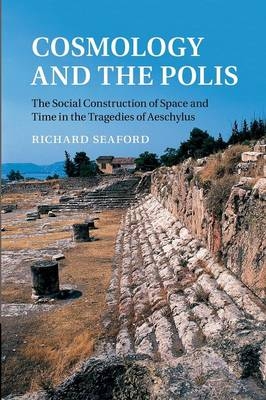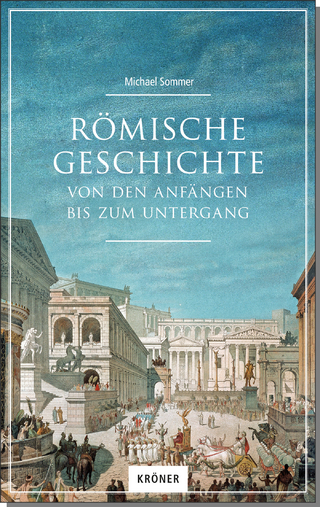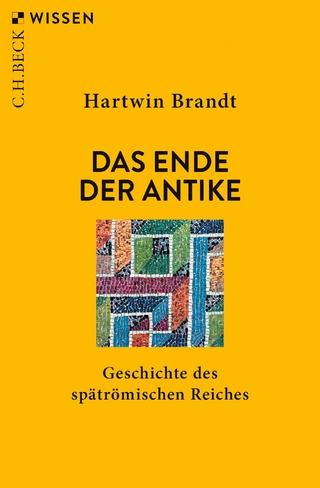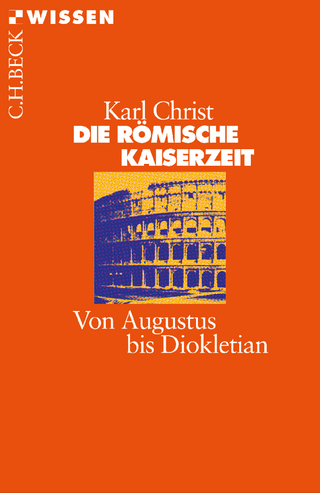
Cosmology and the Polis
Cambridge University Press (Verlag)
978-1-107-47072-9 (ISBN)
This book further develops Professor Seaford's innovative work on the study of ritual and money in the developing Greek polis. It employs the concept of the chronotope, which refers to the phenomenon whereby the spatial and temporal frameworks explicit or implicit in a text have the same structure, and uncovers various such chronotopes in Homer, the Homeric Hymn to Demeter, Presocratic philosophy and in particular the tragedies of Aeschylus. Mikhail Bakhtin's pioneering use of the chronotope was in literary analysis. This study by contrast derives the variety of chronotopes manifest in Greek texts from the variety of socially integrative practices in the developing polis - notably reciprocity, collective ritual and monetised exchange. In particular, the Oresteia of Aeschylus embodies the reassuring absorption of the new and threatening monetised chronotope into the traditional chronotope that arises from collective ritual with its aetiological myth. This argument includes the first ever demonstration of the profound affinities between Aeschylus and the (Presocratic) philosophy of his time.
Richard Seaford is Professor of Ancient Greek at the University of Exeter. His publications range from Homer to the New Testament and include commentaries on Euripides' Cyclops (1984) and Euripides' Bacchae (1996), Reciprocity and Ritual: Homer and Tragedy and the Developing City-State (1994) and Money and the Early Greek Mind: Homer, Philosophy, Tragedy (2004). In 2009 he was President of the Classical Association.
Introduction; Part I. The Social Construction of Space, Time and Cosmology: 1. Homer: the reciprocal chronotope; 2. Demeter Hymn: the aetiological chronotope; 3. From reciprocity to money; Part II. Dionysiac Festivals: 4. Royal household and public festival; 5. Aetiological chronotope and dramatic mimesis; 6. Monetisation and tragedy; Part III. Limit and the Unlimited in Confrontational Space: 7. Telos and the unlimitedness of money; 8. Suppliants; 9. Septem; 10. Confrontational space in Oresteia; 11. The unlimited in Oresteia; 12. Persians; Part IV. The Unity of Opposites: 13. Form-parallelism and the unity of opposites; 14. Aeschylus and Herakleitos; 15. From the unity of opposites to their differentiation; Part V. Cosmology of the Integrated Polis: 16. Metaphysics and the polis in Pythagoreanism; 17. Pythagoreanism in Aeschylus; 18. Household, cosmos and polis; Appendix: was there a skēnē for all the extant plays of Aeschylus?
| Zusatzinfo | 1 Maps |
|---|---|
| Verlagsort | Cambridge |
| Sprache | englisch |
| Maße | 153 x 230 mm |
| Gewicht | 560 g |
| Themenwelt | Literatur ► Klassiker / Moderne Klassiker |
| Literatur ► Lyrik / Dramatik ► Dramatik / Theater | |
| Geschichte ► Allgemeine Geschichte ► Altertum / Antike | |
| Geisteswissenschaften ► Philosophie ► Philosophie Altertum / Antike | |
| Geisteswissenschaften ► Sprach- / Literaturwissenschaft ► Anglistik / Amerikanistik | |
| Geisteswissenschaften ► Sprach- / Literaturwissenschaft ► Literaturwissenschaft | |
| ISBN-10 | 1-107-47072-2 / 1107470722 |
| ISBN-13 | 978-1-107-47072-9 / 9781107470729 |
| Zustand | Neuware |
| Haben Sie eine Frage zum Produkt? |
aus dem Bereich


